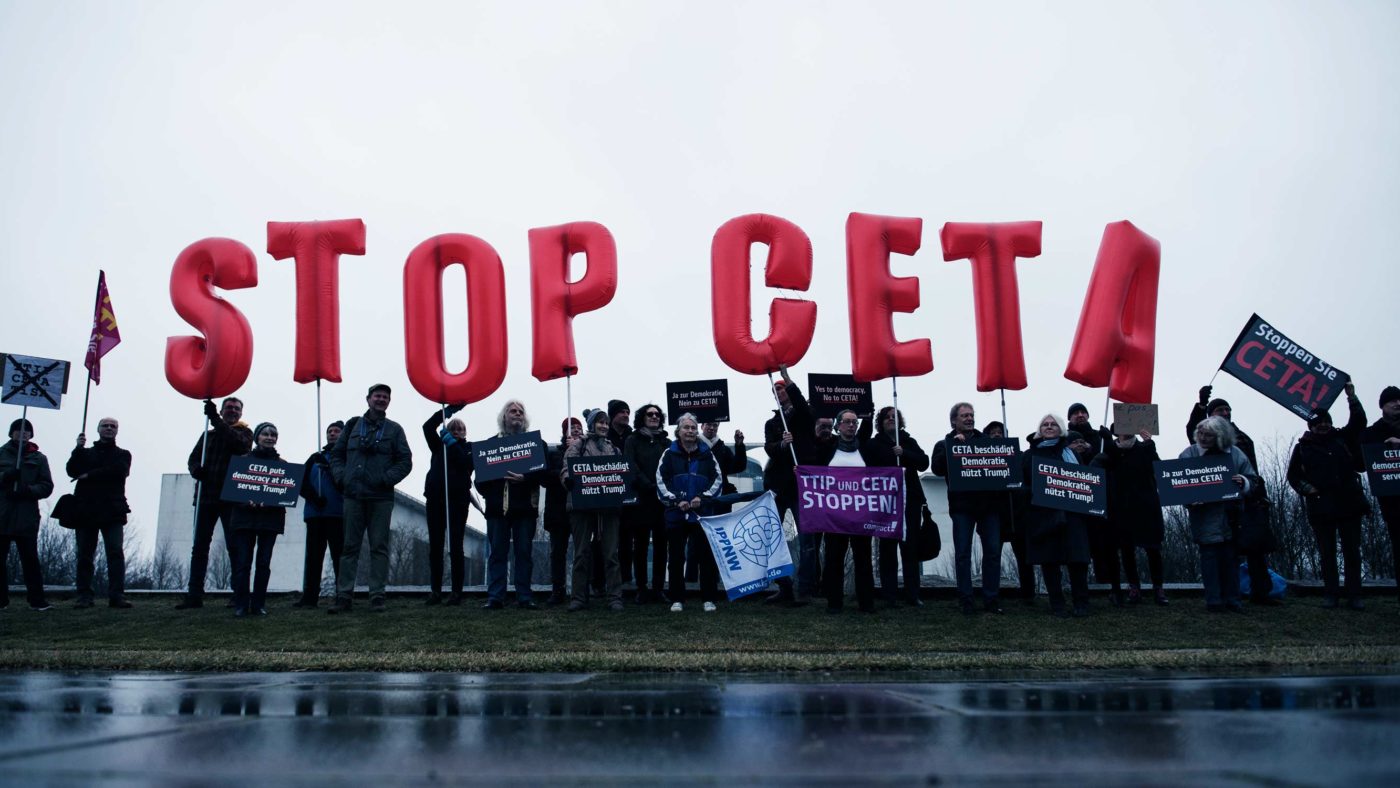In the acronym-filled debate about the European Union’s trade policies, the mood has taken a decidedly anti-free trade turn in recent years. CETA and TTIP both incited large-scale protests in major European cities.
The question, then, is: who is fuelling the anti-free trade spirit that has taken hold? The answer might surprise you.
In March, the European Parliament’s Committee on Budgetary Control, led by German CDU MEP Markus Pieper, investigated the scale of EU-funded lobbying, and the immense grants associated with it. In 2015 alone, the European Union spent a total €1.2 billion in grants to support European NGOs who lobby EU institutions.
In 2016, the European Centre for International Political Economy (ECIPE) published a 147-page report regarding the rise of anti-TTIP advocacy groups. Among its findings was the fact that the allocation of EU funds is largely opaque. ECIPE slammed the Commission for having no harmonised rules on how grants are distributed and said that it is “practically impossible” to retrieve information on terms that these funds were initially attributed. In a damning finding, the ECIPE said that: “There is no transparency about EU grants to NGOs and financing practices.”
The ECIPE could discern enough about where the money went to conclude that the majority of the funding is interconnected and goes to very similar organisations. That was clear from the campaign against TTIP, in which groups used easy-to-use online tools to mobilise opposition. Only 2.4 per cent of replies to the European Commission’s consultation process actually came from individual citizens, the rest were largely copy-and-pasted statements from well-connected NGOs.
The ECIPE report also supports the idea that there is clear political bias in the distribution of funding from the EU. The funded groups overwhelmingly rejected TTIP and other free trade agreements on left-wing grounds. Take the EU-funded Transnational Institute, whose president is Susan George, author of the book How to win the Class War and regular contributor to the New Internationalist. It has continuously spread fear and mistruths about TTIP. Giving an anti-trade, anti-industry group like the Transnational Institute millions of euros is an odd move when the EU as an organisation is supposed to be committed to striking such free trade agreements.
This only underlines the broader problem with EU funding. By providing large grants to think tanks, Brussels is convinced it is strengthening civil society. But this is largely an illusion. Despite the left-wing opposition to free trade, it is generally just feeding its own political narrative. Groups wanting more centralised power in Brussels, more regulation and increased foreign aid are overrepresented among the think tanks the EU has given favourable financial support.
The EU is on a hiding to nothing if it thinks that it can make its democratic deficit disappear by sponsoring civil society. The process might make the union seem more participatory, but it is participation for the few, not the many.
This is especially concerning regarding the political biases of these NGOs. The organisation NGO Monitor has pointed out that some EU funding goes to groups engaging in “political warfare” against Israel and called the focus of the funding “disproportionate. The Pieper report therefore called for the rejection of funding for NGOs who “demonstrably disseminate untruths and/or whose objectives are contrary to the fundamental values of the European Union, democracy, human rights and/or strategic commercial and security policy objectives of the European Union institutions”.
A 2013 Institute for Economic Affairs report came to a similar conclusion to the ECIPE when it comes to EU grants. The report’s author, Christopher Snowdon, discovered multiple NGOs that were almost entirely reliant on the EU, justifiably labelled them as “puppets”: “For example, Women in Europe for a Common Future received an EC grant of €1,219,213 in 2011, with a further €135,247 coming from national governments. This statutory funding made up 93 per cent of its total income while private donations contributed €2,441 (0.2 per cent) and member contributions just €825 (0.06 per cent).”
The Snowden report also pointed towards the homogeneity of these NGOs, as most of them describe their goals to be related “stakeholders”, “sustainability”, “social justice”, “capacity building”, “fundamental rights”, “diversity”, “equity” and “active citizenship”.
The EU’s position on free trade should not be compromised by large-scale funding into progressive groups who fear-monger with taxpayers’ money. On free trade, and other issues, open and transparent dialogue is what the EU desperately needs.
This piece has been updated to clarify that the Transnational Institute’s EU funding is not used for its anti-TTIP campaigning


